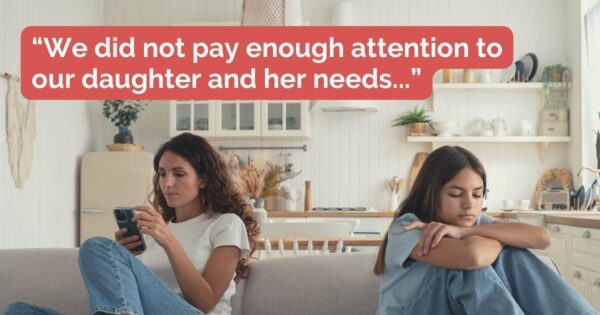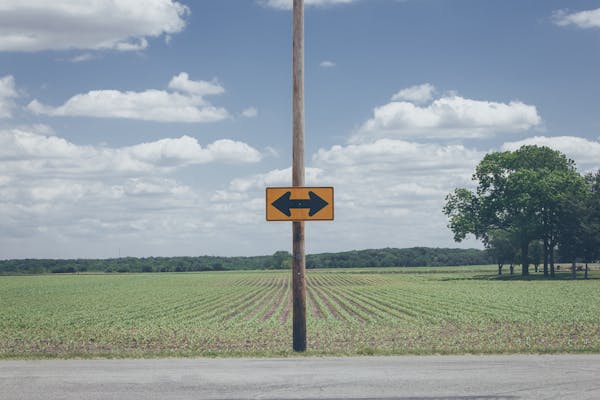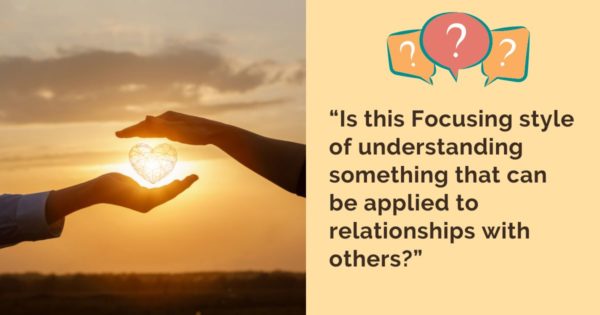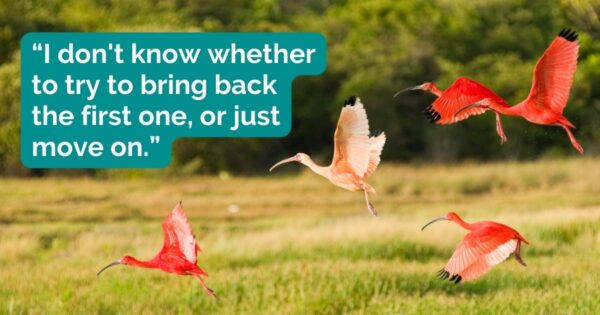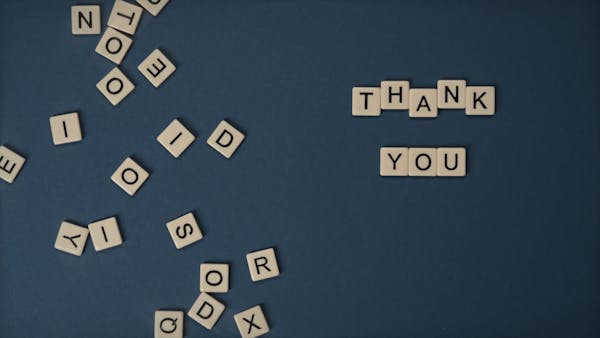“How can I weave a bit of Focusing into a conversation?”
~~~~~~~~~~~~~~~~~~~~~~~~~~~~~~~~~~~~~~~~~
Joan writes: “Now that I know Focusing, I wonder if there is ever a way to use it in a social situation to help someone else. (I’m aware that I can use Focusing on myself if something comes up which makes me uncomfortable.)
“Usually if someone is in some sort of pain, emotional or physical, I listen … I shower them with empathy … I might share similar experiences … and if they ask, I might share any intuitive hits, or offer to help. But, I’m wondering if there’s a way to sneak in a tidbit of Focusing under the radar – without announcing it?
“I’m not talking about offering someone a session, or saying ‘would you like me to
guide you through some Focusing,’ which is a possibility with certain friends who are sharing their struggles or discomfort. But right now I’m asking if there is a naturalistic way to weave a bit of Focusing into a conversation.”
Dear Joan,
Interesting question!
Let’s pause and appreciate what you’re already doing, with your friend who is in distress. You are showering them with empathy! (What a good friend!) You are sharing similar experiences (so they don’t feel so alone) and you are sharing your intuition, or offering to help. Wow, that’s a lot!
Especially the first one – the empathy – is actually quite rare, I find, when friends speak to friends.
Maybe this is just the culture I come from, but for most of my life until I found Focusing, most people (starting with my mother) met my troubles with helpful advice. They were trying to be helpful.
The problem was that I felt squashed and pushed back when I heard advice instead of empathy. That included people telling me what happened to them that was similar, what they did, or what they would do. (I’m sure Joan that when YOU tell people your similar experiences it’s only after lots of
empathy first.)
Until I encountered the Focusing world, I didn’t even know what empathy was. I thought it was saying things like, “I know how you feel,” or “That sounds awful.”
Then I stumbled into my first Focusing community at age 22, and had the mind-blowing, life-altering experience of being REALLY LISTENED TO.
There isn’t anything like it.
When someone was there JUST listening, a space opened up in me. I felt I could trust myself to explore what would work for me. I got curious about my troubles instead of feeling swamped by them. Life started to feel better. I don’t think there’s any greater gift you can give a friend than that kind of listening.
What Focusing people mean by listening is clearing your mind so thoroughly of your own reactions that all you’re doing is hearing how the other person has it. My first listening teacher likened it to “having a clear pool in front of you to reflect the other person’s meaning.”
In Focusing partnerships we often say back nearly exactly what the other person said. In friendships, you may not want to do that. But you can get the spirit of it.
The other thing I’ve found is that the more upset people are, the more they love hearing back what they’re saying. Of course you would say it not mechanically, but with the warm empathic tone that you’re actually feeling as you listen.
“I’m just so upset, I can’t believe she did that to me.”
“Yeah, you can’t believe she did that to you!”
“I’m tired, I’m more than tired, I’m so exhausted my bones hurt. And now a whole other project I have to do.”
“You were already tired, and here comes this other project on top of it.”
If you say things like this to your friends, I guarantee you they will love what a good listener you are. And you get points for making a space in which they can explore, and trusting them to do that. The
biggest benefit is that you remember it’s not up to you to solve their problems – they can actually do that themselves.

